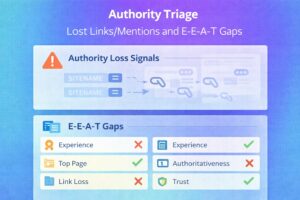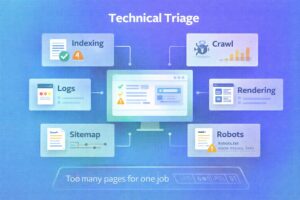Recently, Microsoft Advertising announced a significant change that impacts the hospitality industry’s digital advertising space. As of February 6th, Microsoft’s Hotel Center Account will no longer support lodging campaigns, a move that will prompt hotel marketers to reevaluate their online advertising strategies. In this comprehensive article, we will delve into what this change means for the hotel industry, how businesses previously benefited from the Hotel Center Account, and explore alternatives for lodging campaigns within the Microsoft Advertising ecosystem and beyond.
Understanding the Change
Microsoft announced that it would end support for Hotel Center Accounts, ceasing the servicing of lodging campaigns through this platform. This pivot means that hotels and travel agencies will no longer be able to upload and manage hotel price and availability data directly through Microsoft Advertising for ad campaigns targeted toward potential travelers. This decision is poised to create ripples across the marketing strategies of those who heavily relied on these campaigns to drive bookings.
Why Microsoft Advertising’s Hotel Center Account Mattered
Before digging deeper into the repercussions of this change, it’s important to understand why Microsoft’s Hotel Center Account was a valuable asset for hotel marketers. The account allowed lodging businesses to create detailed adverts that showcased real-time pricing and availability information in Microsoft’s search results, primarily through Bing.
Real-time Data: The most significant benefit was the ability to display up-to-date pricing and vacancy information directly in the search engine results page, potentially increasing click-through rates and conversions.
Targeted Advertising: Hotel Center Account also allowed for detailed targeting based on the user’s destination and travel dates, ensuring ads reached the most relevant audience.
Rich Ad Experience: The ads provided a rich, interactive experience that included images, ratings, and prices, giving potential customers a snapshot of what to expect, often enhancing the decision-making process.
These features made the Hotel Center Account a sharp tool in the digital marketer’s shed, particularly for those in the hospitality sector looking to direct drive bookings through their online channels.
Impact on the Hospitality Industry
The discontinuation of the Hotel Center Account for lodging campaigns is likely to have a significant impact on the advertising strategies of hotels and travel agencies. With the ad format’s ability to influence traveler’s decision-making processes effectively, marketers will have to find new ways to occupy that space and reach potential guests.
Alternative Strategies within Microsoft Advertising
Despite the end of Hotel Center Account support, there are still several ways hotels can utilize Microsoft Advertising to reach potential customers. Marketers will want to explore other ad formats and features available that can help them achieve similar goals.
Bing Hotel Ads: While the Hotel Center Account will no longer be available, Bing Hotel Ads will continue to run, allowing advertisers to manage their hotel campaigns via third-party platforms connected to Bing Ads.
Expanded Text Ads: Another way to make up for the loss is through Expanded Text Ads, which offer additional space for descriptive advertising copy and can be tailored with ad extensions such as sitelinks or callouts.
Audience Targeting: Microsoft Advertising also provides various audience targeting options, including in-market audiences, that can help in reaching individuals who are actively researching hotels and travel.
Hotels will need to adapt by working with these alternative formats, which, while not as specialized as the Hotel Center Ads, still provide a myriad of opportunities for engaging with potential travelers.
Looking Beyond Microsoft Advertising
For those willing to venture outside of Microsoft’s offerings, there are numerous avenues for digital marketers to engage with audiences and drive bookings.
Google Hotel Ads: Arguably the most direct alternative, Google’s Hotel Ads allow for similar functionality with extensive reach given Google’s dominant search engine market share.
Online Travel Agencies (OTAs): Platforms like Booking.com, Expedia, and Airbnb can also provide visibility and booking capabilities, albeit at a cost with commission fees.
Social Media: With a large audience and robust targeting capabilities, platforms like Facebook and Instagram can also be powerful tools for hotel marketing.
These alternatives can either complement Microsoft Advertising efforts or serve as completely new channels for reaching potential customers.
Preparing for the Change
As February 6th approaches, it’s crucial for hotels and marketers to prepare for the transition away from Hotel Center Accounts. Inventory management, campaign adjustments, and strategy overhauls should be top priorities to ensure a smooth shift to alternative advertising methods.
How to Adapt Your Hotel Marketing Strategy
Adaptation will be key in responding to the end of Microsoft Hotel Center Account support. Here are some steps marketers can take:
Evaluate Current Campaign Performance: Understanding which campaigns are most effective can help in allocating resources to the right channels post-transition.
Increase Investment in High-performing Channels: If certain platforms or ad formats are working well, consider redirecting funds from Hotel Center campaigns to these areas.
Explore New Partnerships: Establishing relationships with third-party platforms that can support Bing Hotel Ads might be an essential next step.
Optimize Website for Direct Bookings: Ensuring that your hotel’s website is optimized for search engines and ease of booking can help capture reservations directly.
Flexibility and a willingness to explore the full spectrum of digital advertising tools will be vital in maintaining visibility in a post-Hotel Center Account world.
Conclusion: Navigating a New Landscape
The end of Microsoft Advertising’s Hotel Center Account support for lodging campaigns marks a significant shift in the digital marketing arena for the hospitality industry. This discontinuation presents both a challenge and an opportunity for hotel marketers to innovate and find new ways to engage with and convert potential guests. By understanding the impact, re-evaluating existing strategies, and embracing alternative channels and platforms, marketers can effectively transition into this new phase of digital advertising.
Ultimately, the core objectives of reaching the right audience with the right message at the right time remain unchanged. Marketers who can adapt quickly and efficiently to this change will be best positioned to succeed in the competitive landscape of hotel advertising. The end of one tool is always the beginning of another innovation, and for savvy marketers, the journey continues with new strategies and an unwavering focus on driving bookings and revenue.
About The Author
Marketing Team
The AOK Marketing Team is a diverse group of amazing individuals driven to help all of our clients succeed. Great people are everywhere, and we believe that people should control their workday, their work environment, and where they live. We have team members in 9 countries: United States, Canada, Egypt, Belgium, Ireland, Australia, India, Pakistan, and Hong Kong.
How can we help you?




